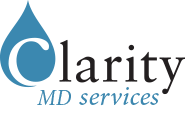After years of historic low interest rate, Bank of Canada has finally raised the interest rates twice in three months and hinted that this is not the end of it. If you are carrying a line of credit or variable mortgage, your monthly expense towards debt servicing has just increased by 18%. To put this into different perspective, if your current cash-flow will allow you to pay off your debt in 15 years, it will now take 15 years and 8 months to be debt free. Here are some steps to manage your debt:
1. Take an inventory of your debt and investments
When prime was at 2.7%, it may make sense to make minimum payment towards your debt and invest in RRSP and TFSA earning 4 to 6% return. In a rising rate environment, you should revisit your strategy to see if it makes sense to stick to the current distribution or should you shift your focus towards debt reduction.
2. Prioritize your debt repayment
You should always repay your debt with the highest interest first. However, make sure you take into account if the interests are fixed or variable. As we expect the rates continue to rise, you should prioritize your payments on variable loans. The other considerations are tax deductibility and tax credits. The interests on a practice loan are deductible. So, “effective” interest rates are less depending on your tax bracket. Interests on government student loan generate a tax credits which lower the actual cost of the loan due to tax refund.
3. Convert non tax deductible interests to tax deductible interests
When a loan is used to generate income, the interests become tax deductible. To convert the interests from non tax deductible to tax deductible, you would first sell the investments and pay down the non tax deductible debt. You would then re-borrow the money and re-purchase the same investment. Your debt and investments remain the same but your interests become tax deductible. If you are in the highest tax bracket, your interests are essentially reduced by half when they become tax deductible.
4. Compare your personal tax bracket with the interest rate (For Incorporated physicians/dentists)
If you spend less than you earn, you are likely to leave money in the corporation and keep yourself in certain tax bracket. This makes sense even when you carry a lot of debt because drawing more money from the corporation will cost you more in taxes than the interests on your debt. As interest rates continue to climb, you should revisit your tax brackets relative to the interests and decide if you should increase your salary/dividend withdrawals from corporation to lower your personal debt quicker.










